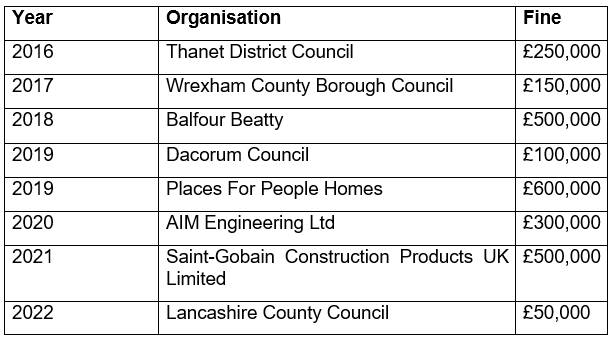What is HAVS?
HAVS, also known as 'vibration white finger', is an occupational condition caused by exposure to vibration in the hands and arms from hand-held power tools, hand-guided equipment and holding materials being processed by machines.
Some of the most common types of power tools and equipment that can cause HAVS include pneumatic drills, chainsaws, pedestal grinders and sanders. Subsequently, workers in industries such as highway maintenance, forestry, manufacturing, mining, automotive manufacture/repair and construction are most likely to be affected by this condition.
HAVS is a debilitating disease, which affects both the circulation and nerves in the fingers, and has been linked to potentially causing Carpal Tunnel Syndrome. Symptoms include tingling and numbness in the fingers and hands, weakening of grip, fingers going white (blanching), painful fingers in cold weather and in some cases, permanent loss of sensation.
Why is it important?
Under the Control of Vibration at Work Regulations 2005 (the "Regulations"), employers have a legal duty to manage the risk of workers being exposed to vibration. Employers must assess the risk from exposure to vibration, identify measures to eliminate or reduce it, and where necessary, provide appropriate training and ongoing health surveillance to exposed employees.
HAVS is a devastating condition that can severely limit the jobs an affected person is able to do and impact negatively on their daily life. As with many occupational conditions, HAVS is preventable, but once the damage is done it can be permanent. The symptoms may not be initially apparent and work exposing an individual to vibration may endure for years before they are aware of any symptoms, so it is important that the risk is acknowledged and mitigated by an employer from the outset.
HAVS Prosecutions
As an employer, if you fail to comply with the Regulations, you are not only putting your employees at risk of developing a debilitating condition, but you are also putting your organisation at risk of prosecution, significant financial penalties and reputational harm.
HAVS remains one of the highest causes of RIDDOR reportable health conditions and the Health and Safety Executive (the "HSE") are continuing to take a strong approach to enforcement. Many HSE investigations identify that businesses and organisations do not manage their HAVS risks adequately. In recent years, following prosecutions for breaches of the Regulations and the Health and Safety at Work etc. Act 1974, significant fines have been imposed not only against companies, but also charities and public bodies, such as local authorities:

*the above facts and figures have been collated from articles published online by various media outlets
What does this mean for you?
In our experience, the key to ensuring you have your HAVS in order is to make sure you have up to date policies and procedures, accurate recording of vibration and tool usage and ensuring that all risks are adequately assessed. Routine occupational health assessments are also vital to the health of your workforce.
DWF's Tier 1 Regulatory, Compliance and Investigations Team has the knowledge and experience to assist you with any concerns about how to manage the risk of workers being exposed to vibration. We strongly recommend that businesses and organisations responsible for managing vibration exposure do not wait until the HSE investigate. Be proactive and undertake your own review now and ensure your systems adequately control the risks. Our specialist team is on hand to help you understand your obligations and can guide you through any enforcement action.
DWF's experienced Crisis Management Team can also help you with all aspects of Crisis Management, from crisis planning and training, to response, reputational management and recovery in the event of an incident.
Find out more about our Crisis and Incident Management Service
Read the latest Regulatory, Compliance and Investigations Insights














